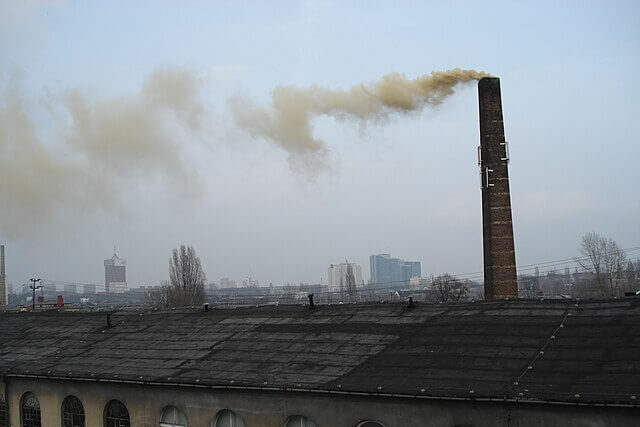
Two recent studies have underscored the harm caused by sooty air pollution emitted by vehicles, industries, and other sources, even at minimal exposure levels.
They have highlighted how governmental regulations often fail to adequately safeguard public health.
US researchers found that exposure to microscopic PM2.5 particles, measuring less than the width of a human hair, poses inherent risks to heart and lung health, with no safe threshold identified.
Analysing data from 60 million individuals aged 65 and older between 2000 and 2016, one study revealed a heightened risk of hospitalisation for seven cardiovascular diseases associated with average PM2.5 levels in the US.
Alarmingly, exposure to typical US pollution levels increased the risk of hospital admission by nearly a third compared to the WHO guideline level.
Moreover, the WHO-recommended limit itself isn’t entirely protective, as demonstrated by the second study, which observed increased hospital visits for cardiovascular and respiratory ailments, as well as emergency visits for respiratory issues, even when short-term PM2.5 exposure fell below the WHO threshold.
“We are seeing a multitude of effects from this pollution, from chronic obstructive pulmonary disease to asthma, and it’s affecting people at very low levels,” said Gregory Wellenius, an environmental scientist at the Boston University School of Public Health and co-author of the second paper. “This is affecting everyone, not just children and the elderly. It’s every age.”
PM2.5 particles primarily originate from fossil fuel combustion in vehicles, power plants, and industries, with wildfires exacerbating the problem, particularly amidst the climate crisis. Upon inhalation, these particles lodge in the lungs, precipitating various health complications.
Despite longstanding awareness of these risks—attributing to approximately 5 million annual deaths globally from fossil fuel-related air pollution—governmental regulations have lagged behind.
While the US Environmental Protection Agency (EPA) recently tightened the national air quality standard for PM2.5, lowering annual allowable emissions, this standard still exceeds the WHO limit. Consequently, widespread harm to Americans persists, as affirmed by the latest research.
Similarly, PM2.5 thresholds in regions like the UK and the European Union surpass WHO guidance, prompting calls for more stringent measures to combat lethal air pollution.
“Obviously, the newly published national standard was not sufficient for the protection of public health,” the authors of the first of the two studies, both published in the BMJ, state.
This disparity highlights the urgent need for comprehensive regulatory reforms to mitigate the detrimental impact of airborne pollutants on public health.
“We have seen very positive impacts in reducing PM2.5 from past levels,” said Wellenius. “There have been enormous health gains from cutting this pollution while the economy keeps marching along strongly. We don’t have to choose between economic or health gains. We can have both and we should have both.”
——————————————————————————
At Natural World Fund, we are passionate about stopping the decline in our wildlife.
The decline in our wildlife is shocking and frightening. Without much more support, many of the animals we know and love will continue in their decline towards extinction.
When you help to restore a patch of degraded land through rewilding to forests, meadows, or wetlands, you have a massive impact on the biodiversity at a local level. You give animals a home and food that they otherwise would not have had, and it has a positive snowball effect on the food chain.
We are convinced that this is much better for the UK than growing lots of fast-growing coniferous trees, solely to remove carbon, that don’t actually help our animals to thrive.
This is why we stand for restoring nature in the UK through responsible rewilding. For us, it is the right thing to do. Let’s do what’s right for nature!
Donate today at https://naturalworldfund.com/ and join in the solution!

